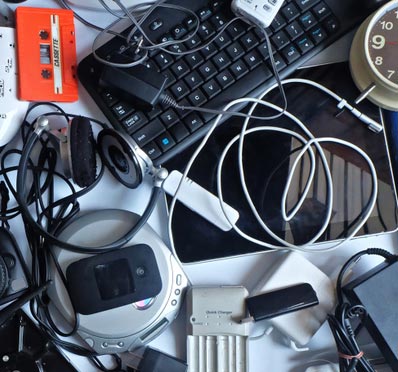It won’t be a great surprise to anyone reading this, but sending electronic waste to landfill is one of the worst possible ways to dispose of those unwanted goods. There’s just so many harmful toxins and different types of plastics and metals in e-waste prove a liability when it comes to safe disposal, and the protection of our planet. If you are upgrading your equipment or simply want to dispose of the old stuff, a much safer and environmentally friendly way to move them on is to employ the services of a specialist, such as our friendly team here at Priority WEEE.
How WEEE services make a difference
We don’t just throw your e-waste away for you, but instead we will do everything we can to reuse or recycle your computer and IT equipment, so that its life is extended and fewer new items need to be manufactured to cope with increased demand. Even if your business is at the cutting edge and needs the most up-to-date technology, there are plenty of businesses out there that can squeeze many more years of life out of your old tech, and stave off the scrapheap a little while longer. That may not always be the case of course, and there will be instances where it’s time to retire… but in many cases, there are at least parts and pieces that can be reused to function more than adequately in many businesses. Refurbished equipment saves the need for brand new, making a small but consistent difference in the requirement of precious metals both being used and then incorrectly disposed of.
Carbon emissions
The carbon emissions associated with sending items to landfill far exceed those of having a professional collect and dispose of it on your behalf, in the most safe and environmentally friendly way possible. For instance, as a basic starting point our fleet of vehicles is low-emission approved, and everything we do is with the impact on the environment in mind.
By not throwing items into landfill, we are actively reducing the carbon emissions that would have been produced by the equipment left to fester or, more likely, burned in an incinerator which would pump harmful greenhouse gases and toxins into the air, soil and surrounding water sources.
Chemical pollutants
The chemicals present in electronic equipment are many and varied, including poisons such as arsenic, mercury and lead, as well as selenium and cadmium. As you might expect, putting these into the ground in the form of electronics is neither helpful nor healthy for the ecology of the planet. Likewise, the burning of such is not kind for the respiratory systems of all creatures in the environment.
Even the manufacturing process itself uses harsh chemicals and huge amounts of fossil fuels. So, by decreasing the necessity for new items to be generated, the pressure on the planet is also decreased and fewer harmful chemicals are produced.
Non-degradable materials
It is not just the electronic side of things which causes issues, but the physical casings in which the technology is housed can be just as harmful. Many will be made from non biodegradable plastics and metals which will just sit in the ground forevermore.
As burning these is so harmful it requires hazmat suits and personal protective equipment to be worn by the workers involved, it stands to reason that the effect on the environment isn’t a positive one. In short, burning the equipment isn’t ideal and should be avoided wherever possible.
Battery disposal
Saving the best till last, sort of… batteries are a different matter entirely. In order to keep from contamination of each other or the environment, each battery requires a specific specialist storage facility. There are so many types of battery, and each has a complex chemical composition, making it a vital and sensitive operation to safely dispose of used items. Incorrect storage or disposal could lead to combustion or contamination of soil, water and other areas.
For peace of mind, we provide advice on the best way to store batteries, and can also arrange storage containers with regular collections, depending on your requirements. You should never throw away batteries in your office or household waste, however small and unassuming they seem. The dangers far outweigh their size.
It doesn’t matter what type or size of batteries you have, from simple alkaline or lithium cells to larger and more harmful lead or nickel. Contact us now to find the best solution for them and you.
Final thoughts
We have years of experience and knowledge in the best ways to dispose of e-waste, as well as a network of valuable contacts which we can tap into to source options for recycling and reusing anything you might no longer have a need for.
Contact us today and we can offer you advice on all areas of your e-waste, so that you can be sure your negative environmental impact is greatly reduced, finding a positive solution to all your requirements.


